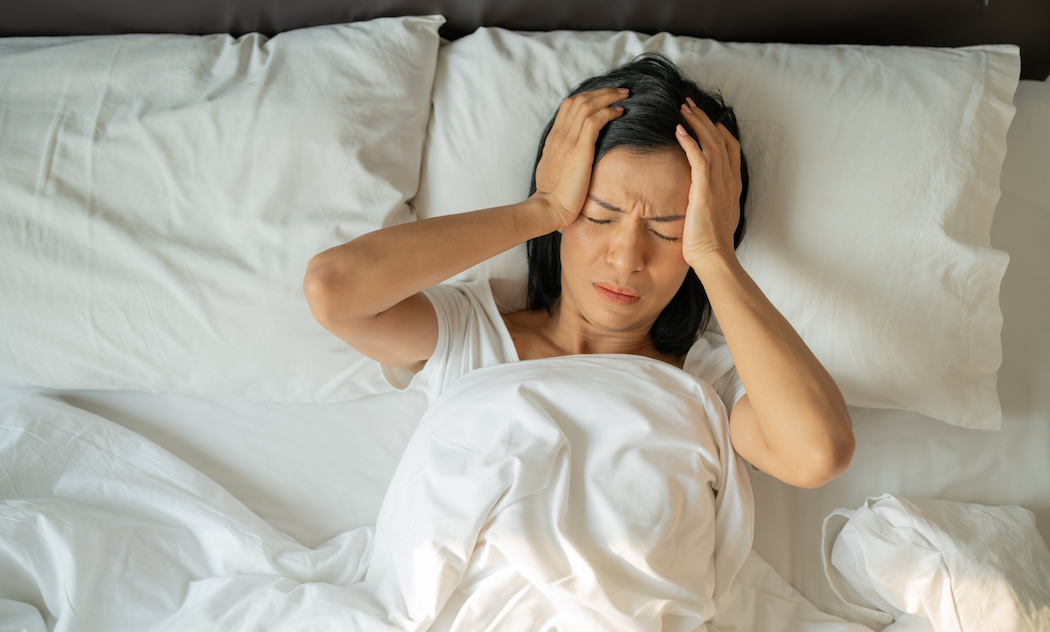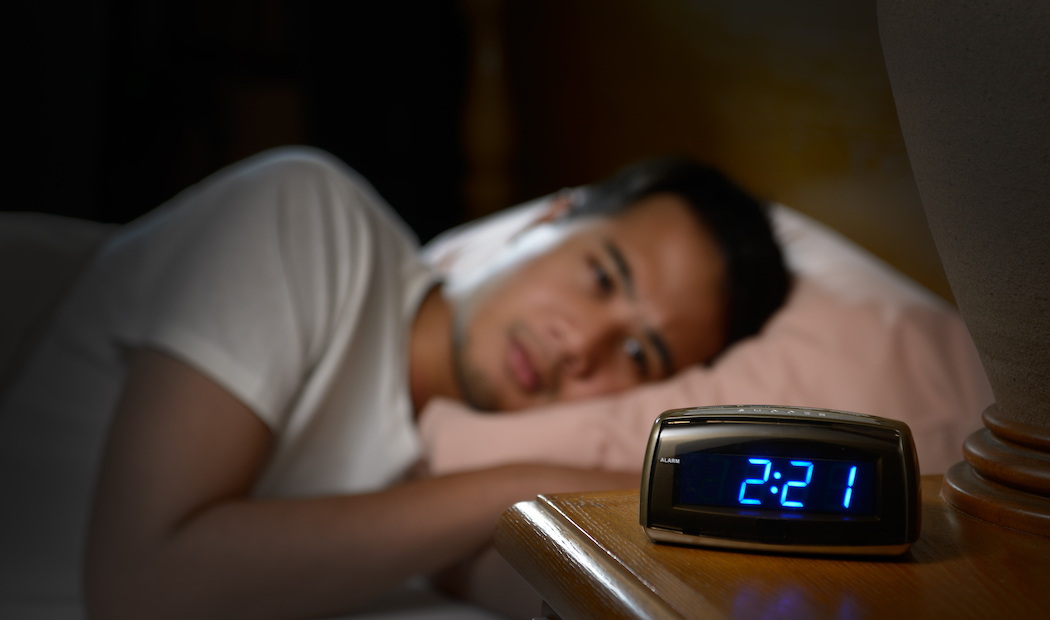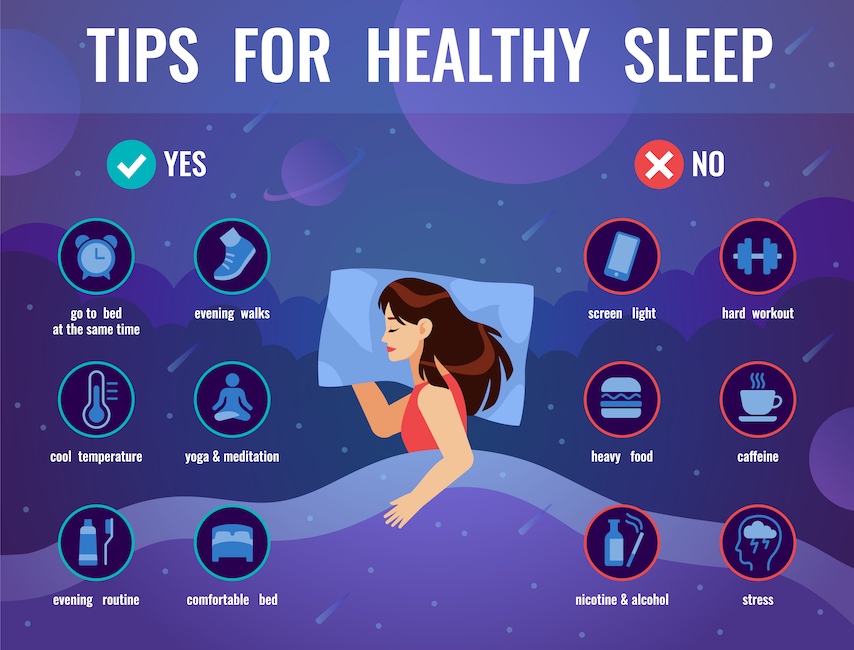In today’s fast-paced world, it’s crucial to underscore the significance of ensuring you get a restful night’s sleep. Sleep isn’t a mere indulgence; it’s a fundamental prerequisite for our health and well-being. It is the cornerstone of our existence, promoting physical vitality and mental acuity. While in slumber, our bodies engage in vital processes of repair, rejuvenation, and preparation for a new day.
Even so, most of us grapple with obstacles that impede our ability to meet a peaceful night’s rest. These sleep disturbances often stem from the pressures of daily life, our dietary choices, and our everyday routines. Such challenges can leave us feeling fatigued, irritable, and far from our usual selves. The hustle and bustle of our modern lives, excessive screen time, and never-ending to-do lists can join forces to deprive us of the restorative sleep we need.
This is where our journey toward improving our sleep quality begins, and the role of sleep-enhancing supplements becomes evident. This guide will delve into the intricate relationship between sleep-related issues and the factors that obstruct a satisfying night’s sleep.
Join us on this expedition into the realm of sleep. We will illustrate how you can enhance your sleep experience and introduce you to supplements that provide valuable help. Your journey towards feeling rejuvenated and embracing good health starts right here.
The Link Between Stress and Sleep

Are you struggling to fall asleep, experiencing restless nights, tossing and turning? We are together in this. Many worldwide struggle to sleep well, and stress is a significant factor.
The Science Behind How Stress Affects Sleep
Experiencing stress can impact your sleep quality. When stressed, your body releases chemicals like cortisol and adrenaline. These chemicals help you deal with stress. Yet, prolonged stress can lead to high cortisol levels, disrupting sleep patterns.
It becomes challenging to relax and fall asleep when stress is running high. Furthermore, stress can make your muscles tense, stopping you from getting into that calm state needed for a good night’s sleep and waking up refreshed. Mental and physical stress both play a role in affecting your sleep.
Hormones Involved in Stress and Their Impact on Sleep Patterns
Cortisol, often called the “stress hormone,” is pivotal in regulating your body’s daily rhythm. In a well-established sleep pattern, cortisol levels peak in the morning, aiding in waking you up, and decline throughout the day. Yet, persistent stress disrupts this innate cycle, leading to elevated cortisol levels at night and creating difficulties when falling asleep.
Stress also messes with melatonin, often called the “sleep hormone.” Melatonin tells your body it’s time to sleep. But anxiety can stop melatonin from being made, making it hard to fall asleep and stay asleep at night.
The Need for Stress-Relief Techniques and Supplements
Improving sleep quality relies on effective stress management because stress and sleep are linked. Incorporating stress-relief techniques into your daily routine can promote better sleep. Deep breathing, meditation, yoga, and progressive muscle relaxation can relax your mind and body, helping you fall asleep more easily.
Besides these methods, sleep supplements can be a helpful part of your stress-management plan. Sleep supplements usually have things like melatonin, valerian root, and magnesium. These ingredients can help control your sleep patterns and relax your body for a better night’s sleep. Considering these supplements, you can support your body’s quest for a good night’s rest.
Understanding Insomnia

Are you struggling to sleep and tossing and turning in bed? No need to worry; we’re here to help. Insomnia is a common sleep problem that impacts millions of people worldwide.
Defining Insomnia
Insomnia, which comes from the Latin word “in Somnus,” meaning “no sleep,” is a problem where you can’t fall asleep or stay asleep, even when you can get a full night’s rest. It messes up your body’s regular sleep schedule, making you feel tired, grumpy, and not your best during the day.
Common Causes of Insomnia
Different things can cause insomnia, and what’s behind it can vary from one person to another. Some of the most common causes include:
- Dealing with Stress and Anxiety: The pressures of daily life, whether stemming from work-related stress or personal challenges, can lead to a racing mind and difficulty unwinding, making a good night’s sleep seem elusive.
- Unhealthy Sleep Practices: Poor sleep routines, such as inconsistent bedtime schedules, late-night screen usage, or consuming caffeine before bedtime, can disrupt your body’s natural sleep rhythm, making it challenging to drift into slumber.
- Influence of Medical Conditions: Certain medical conditions like chronic pain, asthma, and acid reflux can introduce discomfort that hampers your ability to enjoy restful nights of sleep.
- Medications and Their Effects: Some prescription medications may bring about side effects that adversely impact your sleep quality. It is crucial to have a conversation with your healthcare provider if you suspect your medication is contributing to your insomnia.
- The Role of Psychological Factors: Conditions like depression and other mental health issues can disrupt your sleep patterns and contribute to persistent insomnia.
Common Symptoms of Insomnia
Identifying insomnia is crucial for seeking the right solutions. The symptoms of insomnia can vary in severity but often include:
- Difficulty falling asleep: Spending an extended time in bed, unable to doze off.
- Frequent awakenings: Waking up during the night and struggling to return to sleep.
- Waking up too early: Rising from sleep earlier than desired and being unable to fall back asleep.
- Daytime fatigue: Feeling exhausted, lacking energy, and experiencing mood swings during the day.
- Poor concentration: Difficulty focusing on tasks due to sleep deprivation.
Top 5 Sleep Supplements for Insomnia and Better Sleep
Are sleepless nights taking a toll on your well-being? If insomnia is keeping you awake, you’re not alone. The good news is that there are practical solutions to help you achieve the deep, restful sleep you deserve.
1. Sonite: A Natural Sleep Supplement
Experience the power of nature with Sonite, a natural sleep supplement crafted from botanical ingredients. Sonite aims to provide a peaceful slumber without causing any side effects or dependency. This unique formula not only aids in better sleep but also helps elevate your mood, leaving you refreshed and revitalized. If you’re looking for an all-natural solution to insomnia, Sonite may be your best choice.
2. Melatonin: The Natural Sleep Hormone
Melatonin is the body’s sleep-inducing hormone, and supplementing with it can be a game-changer for those struggling to fall asleep. It’s particularly effective for regulating sleep patterns disrupted by factors like jet lag or shift work. Melatonin supplements can help you lose sleep faster and enjoy a more consistent sleep schedule.
3. Valerian Root: A Herbal Remedy
Valerian root is a centuries-old herbal remedy with soothing properties. It’s well-known for reducing anxiety and promoting relaxation, making it easier to drift off to dreamland. Many people turn to valerian root to ease insomnia and enjoy a more peaceful night’s sleep.
4. Magnesium: Essential Mineral for Relaxation
Magnesium, an essential mineral crucial for the proper functioning of muscles and nerves, plays a significant role in promoting relaxation and bringing tranquility to both body and mind. Countless individuals struggling with sleep issues have discovered that adding magnesium to their routine can effectively elevate the quality of their sleep and promote a state of deep relaxation.
5. L-Theanine
L-Theanine, an amino acid naturally occurring in tea leaves, is renowned for its soothing attributes. It has the power to diminish anxiety and stress, instilling a profound sense of serenity and calm. Consequently, L-Theanine has been increasingly adopted as a remedy for enhancing the overall sleep experience, contributing to a more peaceful and restful night.
How to Use Sleep Supplements Safely
To make your sleep better, sleep supplements can help. But it’s really important to use them carefully.
Dosage Recommendations
Finding the right amount of sleep supplements can be tricky because it’s different for each product. It’s crucial to follow the instructions on the label or package. Keep in mind that what works for one person might not work for someone else because we’re all different. To figure out the best amount, start with the smallest recommended dose and raise it if needed. Remember, taking too much isn’t better when it comes to supplements; it can cause bad effects if you go over the recommended dose.
Potential Side Effects and Interactions
Figuring out the right amount of sleep supplements to take can be tricky because it’s different for each product. Following the manufacturer’s instructions is essential to the product label or packaging. Remember that everyone’s body is unique, and what works for one person may not work for another. To determine the right amount, begin with the smallest suggested dose and raise it if needed. Remember, taking too much of a supplement isn’t a good idea. It can cause harmful effects if you go over the recommended amount.
One sleep supplement that stands out for its safe profile is Sonite. Sonite promotes restful sleep without causing grogginess, unlike some other sleep aids. It contains a blend of natural ingredients that work with your body’s sleep processes, making it a safer option for those seeking a peaceful night’s rest.
The Importance of Consulting with a Healthcare Professional
Before you use sleep supplements or any other kinds, it’s crucial to have a chat with a healthcare expert. A doctor or a qualified healthcare expert can help you pick the sleep supplements that are right for you. They can also see if these supplements could create issues with your medications or any health problems you have to make sure you stay safe and healthy.
Other Ways to Enhance Sleep Quality

Sleep supplements can be a valuable ally in the quest for a good night’s sleep. But, they are one piece of the puzzle.
1. The Role of Diet, Exercise, and Mindfulness Practices
The foods we consume can have a large impact on our sleep. To promote better sleep, consider incorporating the following dietary habits:
Diet:
- Limit Caffeine and Alcohol: These substances can disrupt your sleep cycle. Avoid them, especially in the hours leading up to bedtime.
- Balanced Diet: A well-balanced diet rich in whole grains, lean proteins, and fruits and vegetables can support health, including sleep.
- Avoid Heavy Meals Before Bed: Indulging in a large, heavy meal right before sleep can cause discomfort and affect your ability to rest.
Exercise:
- Promotes Relaxation: Exercise can reduce anxiety and stress, making it easier to fall asleep.
- Regulates Sleep Patterns: Engaging in physical activity can help regulate your body’s internal clock, making it easier to fall asleep and wake up at consistent times.
Mindfulness Practices:
- Meditation: A few minutes of mindfulness meditation before bed can help quiet a busy mind and reduce stress.
- Deep Breathing: Deep, rhythmic breathing exercises can relax the body and promote a sense of calm conducive to sleep.
2. Importance of a Consistent Sleep Schedule
Consistency is vital when it comes to sleep.
To get better sleep, try these simple steps:
- Stick to a Set Bedtime: Go to bed and wake up at the same time every day, even on weekends.
- Don’t Oversleep: Avoid sleeping in on weekends. It can mess up your body’s sleep rhythm.
- Develop a Bedtime Routine: Create a calming bedtime routine to let your body know it’s time to relax.
Keeping a regular sleep schedule helps your body’s internal clock stay on track, making it easier to sleep well and wake up feeling rested.
3. Environmental Factors to Consider
A conducive sleep environment is vital for quality rest. Pay attention to the following environmental factors:
- Room Temperature: Keep your bedroom cool but comfortable. Most people sleep best in temperatures between 60-67°F (15-20°C).
- Light: A dark room promotes better sleep. Invest in blackout curtains or an eye mask to block external light sources.
- Noise: Reduce noise disturbances by using white noise machines or earplugs, especially if you live in a noisy neighborhood.
Conclusion
Our search for the ideal sleep supplement has uncovered various choices to help you get the rejuvenating shut-eye you need. We’ve explored the worlds of melatonin, valerian root, magnesium, and other sleep-inducing wonders, learning about the possible advantages each has to offer.
Optimizing your odds of getting the finest sleep of your life may be achieved by combining these lifestyle modifications, stress-reduction methods, and the prudent use of sleep aids. Ascentrees’ Sonite, your trusted sleep supplement, helps you on your way to better sleep health.
Our Sonite, a high-quality sleep supplement, compliments your all-around approach to sleep enhancement. Ascentrees has you covered whether you’re searching for a melatonin tablet to control your sleep-wake cycle or a natural herbal cure like valerian root to relax your thoughts before night.
Never forget that getting enough good sleep is essential for living a longer, healthier life. You may finally get the quiet, undisturbed sleep you’ve been longing for with the help of Ascentrees, stress management techniques, and lifestyle adjustments.
Make Ascentrees your travel companion on this path to a more refreshed, well-rested you by taking the first step towards better sleep today. Await sweet dreams.
Act right now. Begin your road to a better night’s sleep by visiting Ascentrees. This is where your journey to restful sleep begins.
